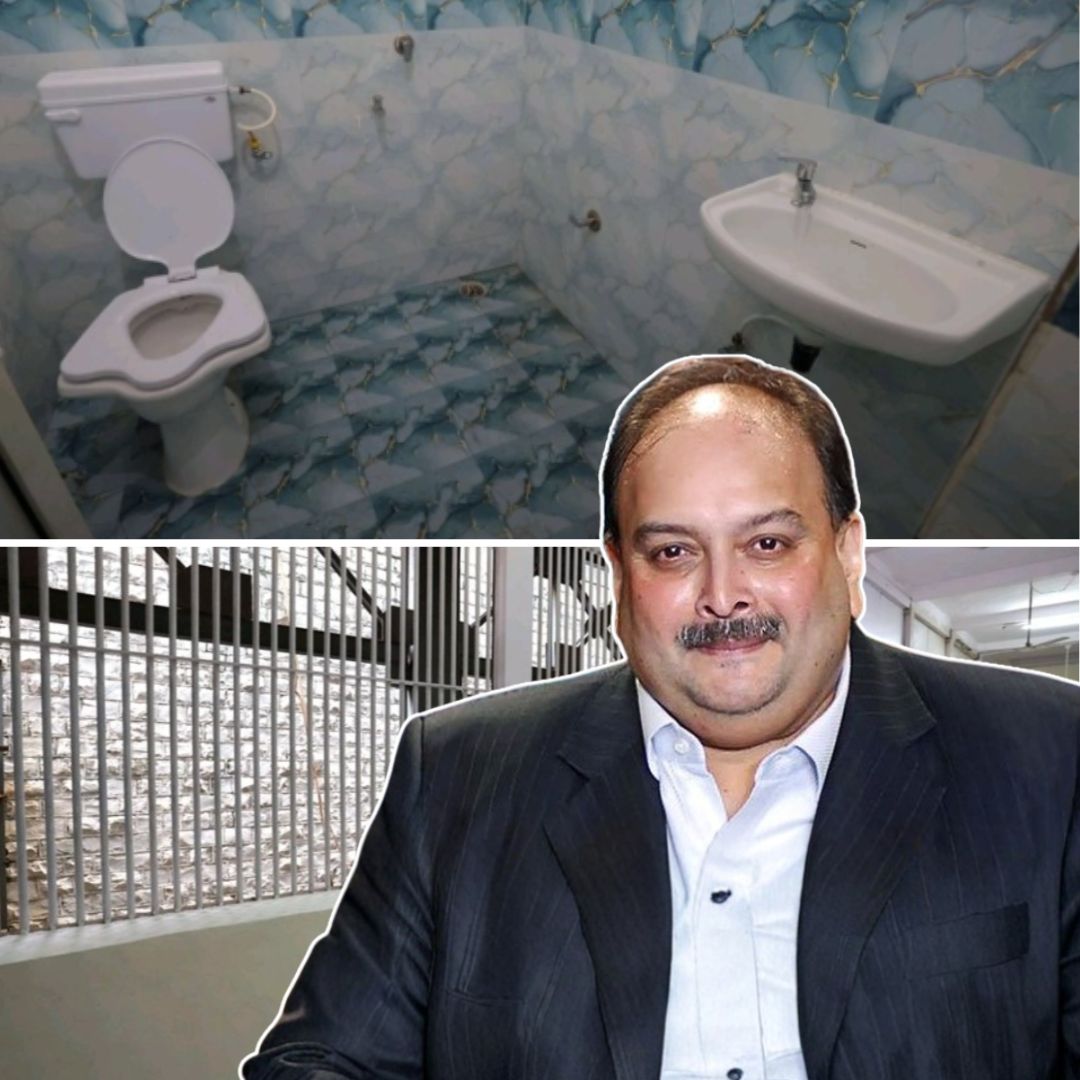In a significant development, a Belgian court in Antwerp has approved the extradition of India’s most wanted fugitive, Mehul Choksi, a key figure in the infamous Punjab National Bank (PNB) fraud case. This judgment marks a crucial step in India’s ongoing efforts to bring the accused back to face trial.
The court’s decision comes after a detailed hearing in which India presented compelling evidence of Choksi’s involvement in cheating, fraud, and conspiracy, alongside assurances that he will be provided humane treatment and fair trial protections in India.
The court dismissed his claims of political persecution and alleged mistreatment, ruling that his extradition is lawful and justified under international treaties and Belgian law.
Mehul Choksi Jail Arrangements in India
India has submitted official photographs of Mumbai’s Arthur Road Jail Barrack No. 12 to Belgian authorities, where fugitive businessman Mehul Choksi will be housed after extradition. The images showcase a 46-square-metre barrack with two cells, private toilets, and basic amenities, countering Choksi’s claims of poor conditions in Indian prisons.
Choksi, central to the ₹13,500 crore Punjab National Bank (PNB) fraud case, fled India years ago, sparking an ongoing extradition battle. The Belgian court rejected his contentions of mistreatment and political victimisation, facilitating progress on the extradition process. India assures his rights and health will be protected during custody.
Who is Mehul Choksi?
Mehul Choksi, born in 1959 in Gujarat, is a prominent industrialist who founded the Gitanjali Group, a jewellery manufacturing company. His name became globally infamous following his involvement in the PNB scam, where he and his nephew Nirav Modi orchestrated a ₹13,500 crore fraud by issuing illegal Letters of Undertaking (LoUs). This scandal shook India’s banking sector and led to a massive crackdown on financial irregularities.
After the scam surfaced in 2018, Choksi fled India and settled in Antigua and Barbuda, acquiring citizenship under the country’s investment programme. Despite his legal status there, Indian authorities have continually sought his extradition, accusing him of fleeing justice and illicitly acquiring foreign citizenship to evade arrest.
The Extradition Process and the Belgian Court’s Ruling
Following his arrest in Belgium in April 2025, India’s extradition request faced a preliminary hurdle as Choksi’s legal team argued he faced potential abuse, unfair trial conditions, and medical risks. His defence claimed he was allegedly abducted from Antigua and subjected to political persecution.
Belgian prosecutors countered these claims, emphasizing that the charges are serious and that India’s legal system guarantees his rights. The Belgian court, after exhaustive deliberations, rejected his claims of mistreatment and political bias, affirming that the charges against Choksi are supported by sufficient evidence and that he can be tried fairly in India.
The court also cited the comprehensive assurances provided by India regarding his detention conditions, medical care, and judicial treatment. The court emphasized that his crime involves serious financial offences, cheating, forgery, and criminal conspiracy, that are punishable under Belgian law.
As a result, the court approved the extradition, stating that there are no legal barriers to returning him to India, though Choksi retains the right to appeal in Belgium’s Supreme Court.
Reactions in India and Global Perspectives
The decision has elicited mixed responses in India. Political leaders from different parties expressed their opinions on the matter. The Opposition welcomed the development, viewing it as a victory for justice and the rule of law.
They highlighted the importance of ensuring accountability for financial crimes, regardless of an accused’s stature or foreign citizenship. Some critics, however, questioned the pace of extradition and drew parallels with past cases of fugitives escaping justice through legal loopholes or diplomatic protections.
Government officials reaffirmed their commitment to ensuring Choksi’s return and emphasized that India has provided all necessary guarantees for his humane treatment.
The Ministry of External Affairs issued a statement assuring that once extradited, Choksi’s rights would be fully protected under Indian law, and he would be lodged in Arthur Road Jail, Mumbai, in accordance with international standards. The legal process now moves to the next stage, with Choksi’s lawyers having 15 days to appeal the court’s order.
The Logical Indian’s Perspective
Mehul Choksi’s case exemplifies the challenges of prosecuting large-scale financial fraud when fugitives use international safe havens. The credible judicial processes in both India and Belgium, transparency about prison conditions, and international cooperation are positive signs for justice and accountability. Such cases underscore the need for robust global mechanisms to prevent impunity and ensure legal processes serve victims’ rights.
News in Q&A
1. Who is Mehul Choksi, and what charges does he face?
Mehul Choksi is a fugitive diamond merchant and former chairman of Gitanjali Group, accused in the ₹13,500 crore PNB fraud involving fake Letters of Undertaking (LoUs). He faces charges including criminal breach of trust, forgery, and criminal conspiracy, and fled India after the scam was uncovered in 2018.
2. What did the Belgian court decide regarding his extradition?
The Antwerp Court of Appeals ruled that there are no legal barriers to Mehul Choksi’s extradition. It dismissed his claims of potential ill-treatment and political bias, stating the charges are punishable under both Belgian and Indian law, and assured that India has guaranteed his fair trial and proper detention conditions.
3. When and how was Choksi arrested in Belgium?
Choksi was arrested on April 11, 2025, at the request of India’s Central Bureau of Investigation (CBI). Since then, he has been lodged in a Belgian prison, with multiple bail requests denied due to flight risk concerns.
4. What are the broader legal and diplomatic implications?
The ruling strengthens India’s case for tackling cross-border financial crimes and signals effective international cooperation. It also counters past criticism around delayed justice due to extradition complexities and sends a firm message against economic offenders exploiting foreign safe havens.
5. How has India and the opposition reacted to the ruling?
Indian government officials hailed it as a victory for justice and the rule of law, emphasizing the guarantees provided for fair trial and humane custody. Opposition parties welcomed the decision, seeing it as a step toward accountability but urged continued vigilance in the legal process. Public opinion reflects cautious optimism amid previous disappointments in similar cases.











